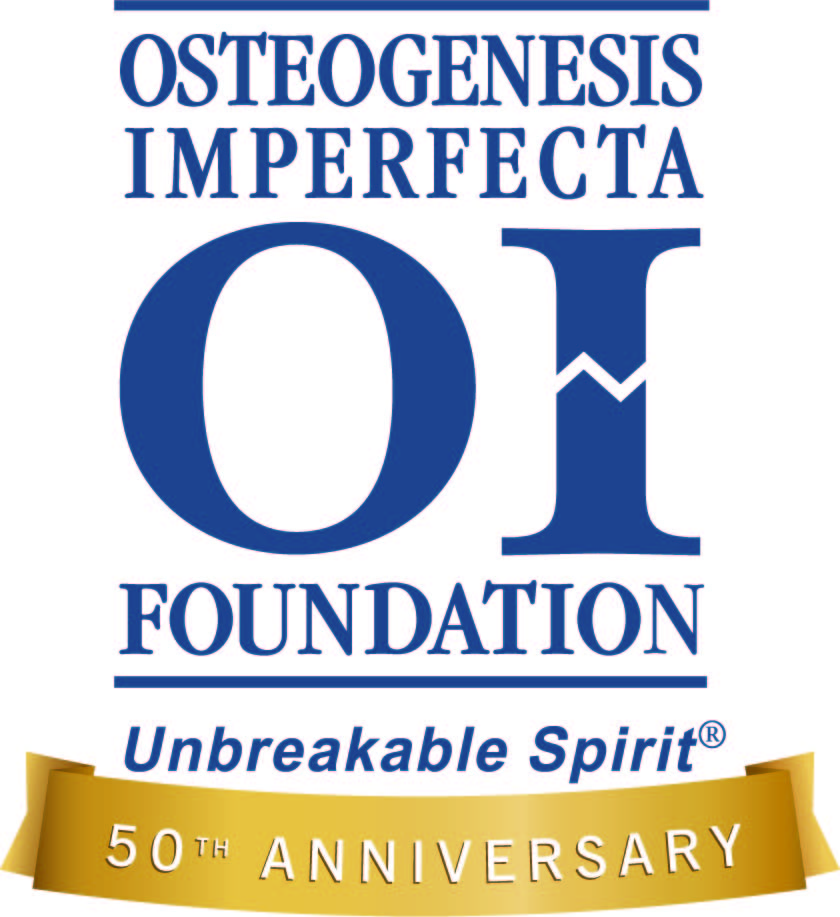Share
COVID-19: A Message from the OI Foundation about Coronavirus Disease 2019

Update March 26, 2020:
The OI Foundation is making every effort to provide the most up-to-date information about the COVID-19 pandemic for the OI community.
If you are an OI community member who has received a confirmed diagnosis of COVID-19 or are presumed positive by a medical professional, please contact us at bonelink@oif.org. Please share if you have mild, moderate, or severe OI and any other information you feel comfortable sharing.
All information we receive is critical to our medical professionals, researchers and your fellow OI community members.
COVID-19 Q&A Video Sessions
 COVID-19 Q&A (3/19)
COVID-19 Q&A (3/19)
Dr. Robert Sandhaus (pulmonologist at National Jewish Health)
Dr. Francis Glorieux (Chair of the OIF’s Medical Advisory Council)
Click here to watch the recording of this session.
Click here to view the full transcription of this recording.
 Mental Health and Self-Care during the COVID-19 Pandemic (3/26)
Mental Health and Self-Care during the COVID-19 Pandemic (3/26)
Dr. Kara Ayers (Associate Director of the University of Cincinnati Center for Excellence in Developmental Disabilities)
Dr. Michelle Fynan (Online Instructor at LA Film School, Online Coach and Therapist)
Click here to watch the recording of this session.
Click here to view the full transcription of this recording.
 Orthopedic Perspectives on OI during the COVID-19 Pandemic (3/26)
Orthopedic Perspectives on OI during the COVID-19 Pandemic (3/26)
Jill Flanagan, MD (Children’s Healthcare of Atlanta)
Jeanne Franzone, MD (Nemours/Alfred I. duPont Hospital for Children, Wilmington)
Maegen Wallace, MD (Children’s Hospital & Medical Center, Omaha)
Click here to watch the recording of this session.
Click here to view the full transcription of this recording.
 Eating Healthy during the COVID-19 Pandemic
Eating Healthy during the COVID-19 Pandemic
Ashley Reese, MMN, RDN, LMNT (Clinical Pediatric Dietitian)
Stefanie Sacks, MS, CNS, CDN (Culinary Nutritionist and Author of What the Fork Are You Eating?)
Click here to watch the recording of this session.
Click here to view the full transcription of this recording.
Update March 13, 2020: The CDC has released new recommendations for people at higher risk for experiencing complications with COVID-19. Please read the full update on the CDC website at https://www.cdc.gov/coronavirus/2019-nCoV/index.html
The current outbreak of 2019 coronavirus (SARS-CoV-2) was first identified in China but has now spread internationally, and has become a major health concern for people in the US. The Centers for Disease Control reports that they expect more confirmed cases in the US in the days and weeks ahead and are working aggressively to control the spread of the virus. The disease caused by SARS-CoV-2 is called COVID-19. COVID-19 causes fever, cough, and shortness of breath. When these symptoms worsen or progress, viral pneumonia is usually found in susceptible individuals. It appears that many individuals who have COVID-19 exhibit only mild symptoms and it is possible that people can be infected and infectious and have no symptoms at all. Among those who do become ill, they may have been spreading the virus for as long as two weeks before they develop symptoms.
At present there is no specific therapy for COVID-19 and there are no specific groups at greater risk of getting infected. BUT, there are groups who are more likely to get severe disease, to require hospitalization, and to have a greater risk of death. These groups include those with lung disease, diabetes, and heart disease. In addition, age, is a factor, with people who are older than 65 years of age more likely to develop severe disease and the risk of death increases with each decade above 60 years of age.
Individuals with OI should follow strictly every recommendation of the CDC and other experts while being aware of unfounded recommendations and even unscrupulous posters on the internet. There is no scientific data available at this time that evaluates any particular approaches unique to the OI community. Expert opinion recommends following these general guidelines:
- Maintain “Social Distancing”: When in public (or even with visitors to your home) stay at least 6 feet from other people in your immediate area. Do not shake hands or touch the skin of other individuals. Avoid groups of 10 or more people in a confined space.
- Avoid air travel, cruise ships, and, in areas with high prevalence of infection, public transportation.
- Avoid close contact with people with respiratory illnesses.
- While sick, limit contact with others as much as possible.
- Stay home if you are sick (self-isolation). Family members who live with you should follow exactly the same restrictions as you.
- Cover your nose and mouth when you cough or sneeze. Best is to cover your mouth and nose with a tissue, immediately discard the tissue, and then wash your hands. Avoid touching your eyes, nose and mouth with unwashed hands; germs spread this way.
- Clean and disinfect surfaces and objects that may be contaminated with germs. Coronavirus can spread by cough and the virus can live on solid surfaces for many hours if not disinfected.
- Wash your hands often with soap and water for at least 20 seconds. If soap and water are not available, use an alcohol-based hand rub with at least 60% alcohol, scrubbing all parts of your hands and fingers until dry.
- Try to maintain a two-week supply of food and water at your home.
- If possible, maintain a 90-day supply of prescription medications at your home.
- Get your flu shot if you haven’t received it yet, but consider obtaining it at your local pharmacy rather than a physician’s office or medical center.
What are specific recommendations for those with OI?
People with OI, especially those with more severe forms, who develop pulmonary symptoms due to COVID-19 are likely to have worse respiratory problems than those without OI. Therefore, the recommendations above need to be observed carefully by the person with OI as well as members of their household. Try to keep up with any additional recommendations released by health authorities, especially those specific to your locality.
The OI Foundation has several publications that address respiratory issues in people with OI including a Take Charge of Your Breathing fact sheet in the OIF’s Adult Health Tool Kit. The frequently asked questions section of the fact sheet reminds people that “people with OI are considered to be in the “high risk” group for lung infections as defined by the Centers for Disease Control and Prevention and currently we believe that people with OI are more prone to bronchial infections and pneumonia. Respiratory illnesses can be very serious, even life threatening health problems for people with OI. Given this information it is VERY important that people with OI continue to follow the recommendations of the CDC and to remember that the best source for specific recommendations and answers to your questions is your own local physician or medical center.
The OI Foundation, with the help of its expert partners, will continue to keep the OI community updated as more information becomes available. In the meantime, we encourage you to monitor the official CDC website www.cdc.gov for current updates and recommendations.
For more information, please refer to the OIF’s Fact Sheets listed below
- Respiratory issues
- Take Charge of your Breathing: Respiratory Recommendations for Adults with OI
- Pneumonia Vaccine for people with OI
Again, please visit the Center for Disease Control’s website for up to date information. As always, if you have questions please contact us at 844-889-7579 or bonelink@oif.org.
Update March 6, 2020: The CDC has released new recommendations for people at higher risk for experiencing complications with COVID-19. Please read the full update on the CDC websiteat https://www.cdc.gov/coronavirus/2019-ncov/specific-groups/high-risk-complications.html
As you know, the current outbreak of 2019 coronavirus (COVID-19) was first identified in China but has now spread internationally including to the US. The Centers for Disease Control reports that they expect more confirmed cases in the US in the days ahead and are working aggressively to control the spread of the virus.
The OI Foundation, with the help of its expert partners, will continue to keep the OI community updated as more information becomes available. In the meantime, we encourage you to monitor the official CDC website www.cdc.gov for current updates and recommendations. As a reminder, the CDC recommends the following preventive actions to help minimize the spread of respiratory diseases:
- Get your flu shot if you haven’t received it yet.
- Avoid close contact with sick people.
- If you are sick, limit contact with others as much as possible. Stay home!
- Cover your nose and mouth when you cough or sneeze.
- Avoid touching your eyes, nose and mouth with unwashed hands.
- Clean and disinfect surfaces and objects that may be contaminated with germs.
- Wash your hands often with soap and water for at least 20 seconds. If soap and water are not available, use an alcohol-based hand rub with at least 60% alcohol.
If you feel sick with fever, cough or difficulty breathing and have traveled to a site listed on the CDC’s website or were in close contact with someone with the coronavirus in the 14 days before you began to feel sick, seek medical care. It is recommended before you go to a doctor’s office, emergency room, or urgent care facility, call ahead and tell them about your symptoms.
Again, please visit the Center for Disease Control’s website for up to date information. As always, if you have questions please contact us at 844-889-7579 or bonelink@oif.org.
